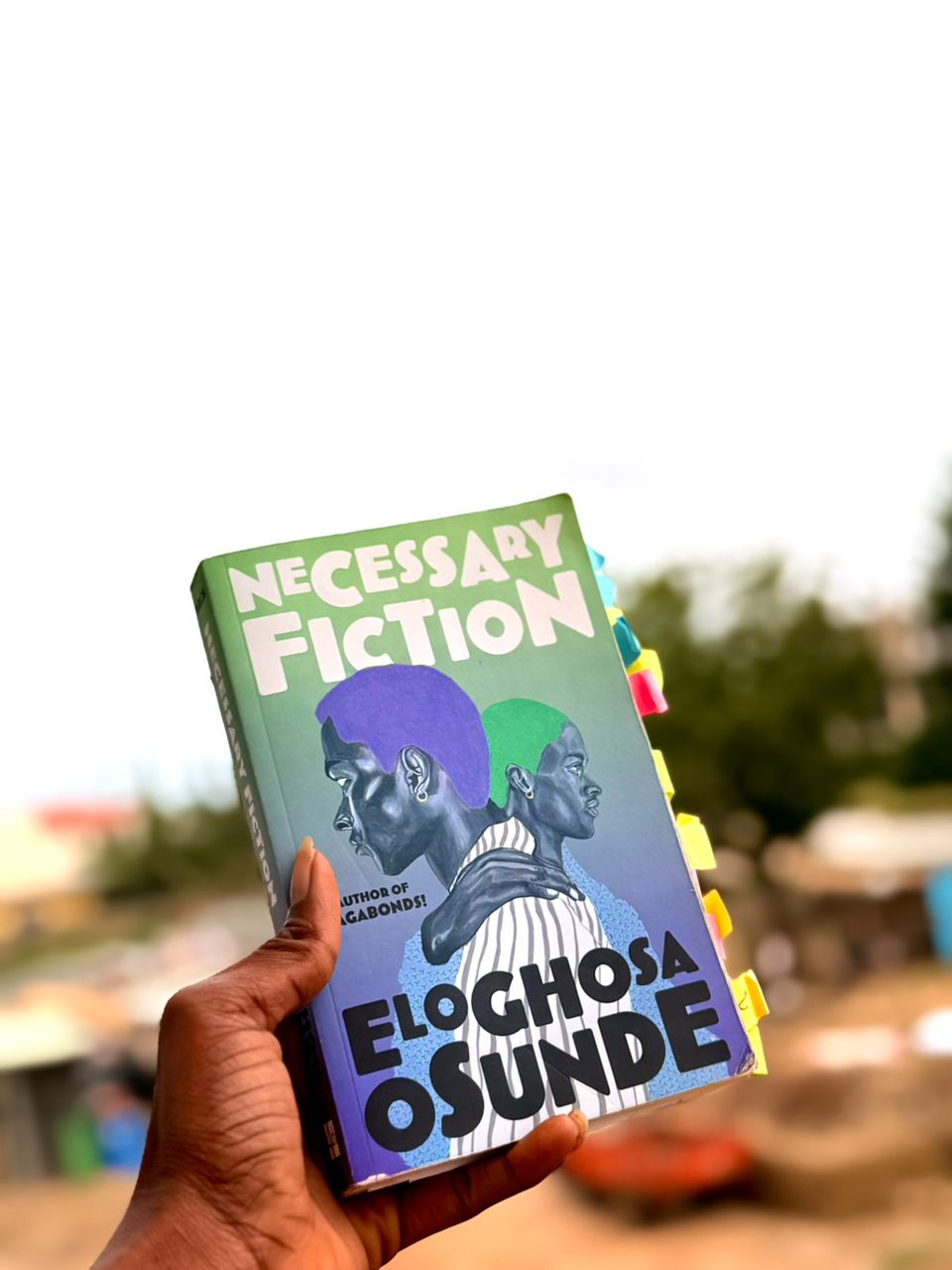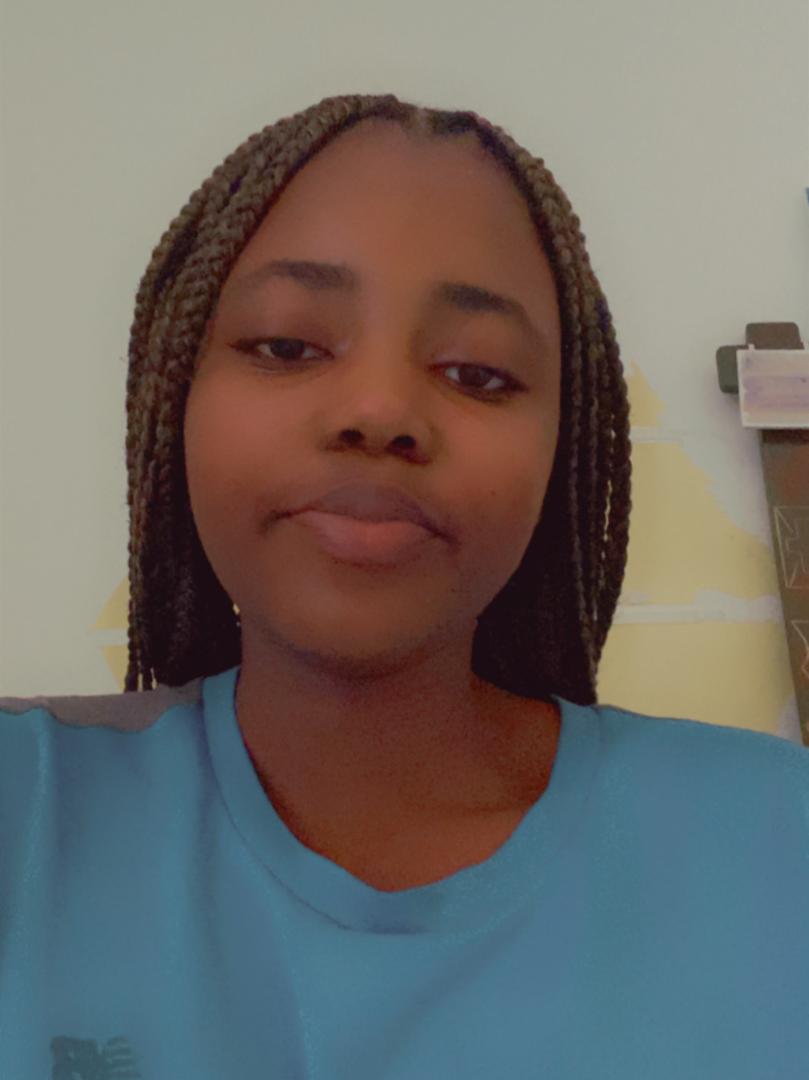
Top 30 Cartoon Characters That Were Villains
Our list rounds up the top 30 cartoon characters that were villains, each one more wonderfully wicked than the last.
Necessary Fiction is that one book you will never tire of rereading. It belongs in museums. It belongs in the halls of the sacred.

DJ play Game Changer (Dike) by Flavour before I start this review (make sure you listen to this and dance to usher yourself into meeting this game changer)
I was ecstatic when I received Necessary Fiction, and when I finally closed its last page, I cried. I took deep breaths, and I cried. I couldn’t believe that something like this was possible. That a story like this is possible. That storytelling like this is possible. It felt like I had been transported to another world and didn’t want to come down.
I knew that after Necessary Fiction, I would fall into a reading slump, and that’s precisely what happened. No book was good enough. I was in a different realm and needed something that matched its frequency. But nothing came close. I was so emotional throughout this book because what a story! Anything I attempt to say would underdescribe it. It was more than great. It was beyond It.
DJ play the first verse of Burna Boy ft Don Jazzy’s song Questions!
Let me start with the title: Necessary Fiction. When I first came across it, which was when the writer shared the draft cover on Twitter when they were done, I wondered what it meant. I was slightly afraid that it wouldn’t beat Vagabonds! I wondered what sort of stories the title could hold. I didn’t know until I began to read.
Then I realized that our lives, the ones we imagine and build to survive, are necessary fictions. The stories we tell ourselves to keep going. The ones we carry. The ones we become. It took me to a quote Eloghosa referenced in the book, by Lidia Yuknavitch:
This is kind of how we get through our lives; we tell ourselves stories so that what’s happening becomes something we can live with. Necessary fictions.
That’s what this book is. And my goodness, the author, what’s the Gen Z expression again? Ate. And left no crumbs.
This story is about resilience. It’s about the small, sacred worlds we create to live as our whole selves. It’s about chosen family, the people we gather and love with intention and care. The love in this book is deliberate, tender, and whole.
It’s a world where we set the rules and invent jobs based on need. Necessary Fiction is built on love. All kinds of love. This book shows us that you’ll also find fear everywhere you see love. While some people let fear consume love, others are brave enough to love despite the fear. Loudly. Deeply. Intentionally. Afraid and still loving.
The final chapters say it all. Maro and Jekwu’s wedding vows? They’re the blueprint—the kind of love and devotion we all deserve to sit in. We get to see the characters’ lives before they leave their fictions and return to their bodies.
Eloghosa has a way with words. I thought Vagabonds! was great, but this book proves that the best is always yet to come. I love it so much.
Eloghosa’s use of language needs to be studied. This book is powerful proof that language belongs to us and we can bend, stretch, dismantle, and rebuild it from scratch. Eloghosa makes language theirs. It felt like I wasn’t reading a story; I was witnessing magic. I’m not over it. I don’t think I’ll ever be over it.
What do you mean by:
She was a sergeant in love. She always stood at attention.
What kind of bold, audacious use of language is that?
And then there’s:
Maro’s mum knew she was pregnant, knew she would give birth to the baby, but as soon as she did, she simply got up from her and Tega’s relationship…
She got up from the relationship. That simple. Got up. Not walked out. Not stormed off. Got up. Do you see the power of that? To get up from something is intentional. It’s processed. You didn’t flinch – you stood, you rose, and you left, without regret or residue. Just got up. That’s what I mean when I say this book is art.
Writing this review, I won’t lie, there’s fear. Fear of underdescribing it. Because this is not a story you can summarize. How do you describe a God? Didn’t they say you have to experience God to know her? To understand her?
But I’ll try to share a fraction of my thoughts.
The book opens with Ziz introducing us to another part of Lagos, an Eko, where people make a living by supplying needs you’d never expect. Ziz had me laughing out loud. What audacity to their parents, but did I love it? Absolutely.
Ziz and Maro’s friendship broke me open. So tender. So raw. The kind of friendship people rarely allow between men, especially when it isn’t sexual. There’s one line I can’t forget: Ziz recalling the first time Maro told him, “I love you.” And Ziz, instinctively, used his body to respond because we’ve been wired to believe that love must mean sex. And Maro, so gentle, just said, “It’s me, Maro.”
A wake-up call. That one sentence was saying I’m your friend. I love you. But I don’t want to sleep with you. That’s not what I mean. Love is possible without sex. That moment moved me. It gutted me. It cracked me wide open.
The world has really traumatized me. We’ve been so robbed of the belief that love can be tender without being transactional. That people can love us without needing something from us in return. That moment was a soft reminder. It made me raw and tender all over again.
And Tega, Maro’s father. I think about him often. Sometimes, it takes an entirely different book to help you understand a character you once misjudged. When I read Onyi Nwabineli’s Someday, Maybe, I didn’t understand Q. I couldn’t fathom why he would leave without a note, without explanation.
But then, years later, Tega erupts from the pages of Necessary Fiction and helps me see Q differently.
Tega’s withdrawal was heartbreaking, but it gave me perspective. I always thought his leaving was selfish, and it is, but Tega showed me how it could also be an act of love. Because sometimes the remnants of your withdrawal only haunt those you leave behind.
Tega left nothing. He erased his withdrawal so completely, so intentionally, that nothing was left to breathe in his absence. He was done. And he wanted the world to know that.
Ajimobi and Ayinke dared me to live in a way that screamed spiritlike. That marriage was special, their love and devotion special, and so their child Akin was special.
Their story transported me back to Francesca Ekwuyasi’s Butter Honey Pig Bread. Banji and Kambiribachi. Akin, in some ways, reminds me a lot about the author Eloghosa Osunde, marinating in his music, letting it speak to him. Isn’t that what art is supposed to do? Move through you?
Ajimobi’s life made me rethink death. Rethink grief. I didn’t see it as pain; the way Ayinke continued after Ajomobi’s body left would not even allow me to think of it as pain.
Grief is the one excuse you get to take time for yourself without guilt in this our world… when you receive the one attached to me, use it well.
I’m still sitting with that. Still sitting in it.
This book forces you to sit with yourself. It reminds you that you are not just flesh, you are a god. That you haven’t stretched or turned yourself inside out, so you still don’t know what you’re capable of. That you have folded yourself so tightly, turned yourself so far inward, that you no longer remember your own edges.
Necessary Fiction calls you back into yourself, into your core. It’s also an ode to chosen families. To intentional friendships. To love that dares to be enough.
The desires of my life will not bend. I will not centre a love that is not careful with me.
This is an instruction. A guide. A mantra.
There are still parents like Isoken and Alhaji out there, angry not because of who you are, but because you dared to live the life they only imagined in secret. But there will always be people like Aunty G, people with warm arms and open hearts. People who will show you what’s possible through the shape of their lives. People who will fill the gaps created by the absence of a certain kind of parenting.
Necessary Fiction is that one book you will never tire of rereading. It belongs in museums. It belongs in the halls of the sacred. It is a guide to life. A fucking beast and a game changer. A soothing balm and proof that creation is possible, that the desires of your life are possible.
Language isn’t enough to explain or describe this.
You have to feel it.
You have to witness it.
You have to experience it.
PS: I just know the audiobook will be fire!!! And I can’t wait to listen to it. I’m so excited for it for real.

hi i am nasiba .

Our list rounds up the top 30 cartoon characters that were villains, each one more wonderfully wicked than the last.

DC is great at making comics and animated movies, while the MCU has the upper hand in its cinematic aspects

Discover the best apps to read books for free in 2025. Access thousands of free e-books and audiobooks on your phone or tablet. ...

There are some outright funny cartoon characters who exist solely to crack you up, loud, hard, and with zero apology.

Things Fall Apart is for the colonizers as well as the colonized, helping to understand the role of colonialism in the realization...

While many of the Nollywood movies on our list are quite old, it’s a testament to the capabilities of the industry’s p...

While this isn’t an exhaustive list, it comprises some of the most popular mythical creatures from around the world.